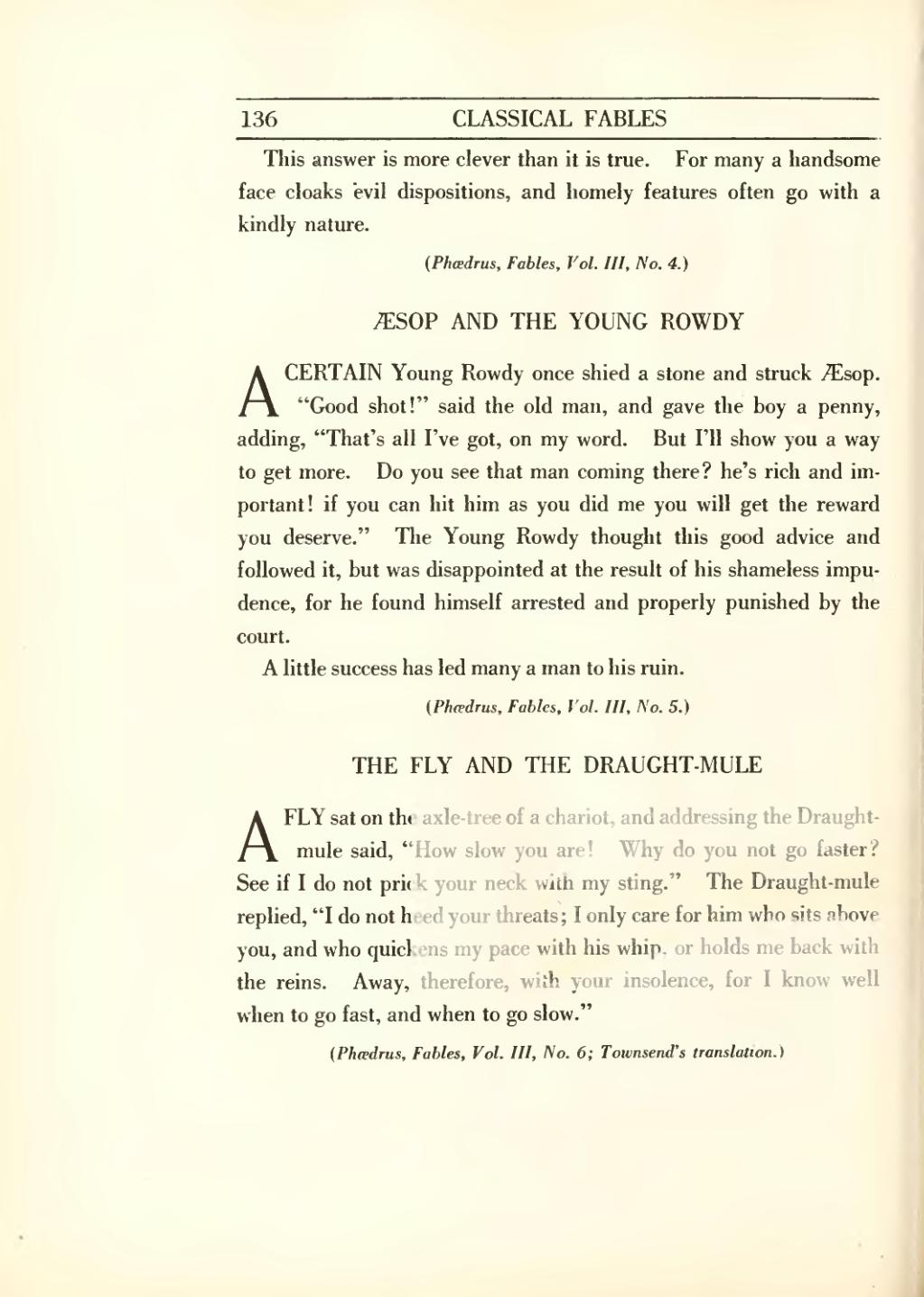This answer is more clever than it is true. For many a handsome face cloaks evil dispositions, and homely features often go with a kindly nature.
(Phædrus, Fables, Vol. III, No. 4.)
ÆSOP AND THE YOUNG ROWDY
A CERTAIN Young Rowdy once shied a stone and struck Æsop. "Good shot!" said the old man, and gave the boy a penny, adding, "That's all I've got, on my word. But I'll show you a way to get more. Do you see that man coming there? he's rich and important! if you can hit him as you did me you will get the reward you deserve." The Young Rowdy thought this good advice and followed it, but was disappointed at the result of his shameless impudence, for he found himself arrested and properly punished by the court.
A little success has led many a man to his ruin.
(Phædrus, Fables, Vol. III, No. 5.)
THE FLY AND THE DRAUGHT-MULE
A FLY sat on the axle-tree of a chariot, and addressing the Draught-mule said, "How slow you are! Why do you not go faster? See if I do not prick your neck with my sting." The Draught-mule replied, "I do not heed your threats; I only care for him who sits above you, and who quickens my pace with his whip, or holds me back with the reins. Away, therefore, with your insolence, for I know well when to go fast, and when to go slow."
(Phædrus, Fables, Vol. III, No. 6; Townsend's translation.)
